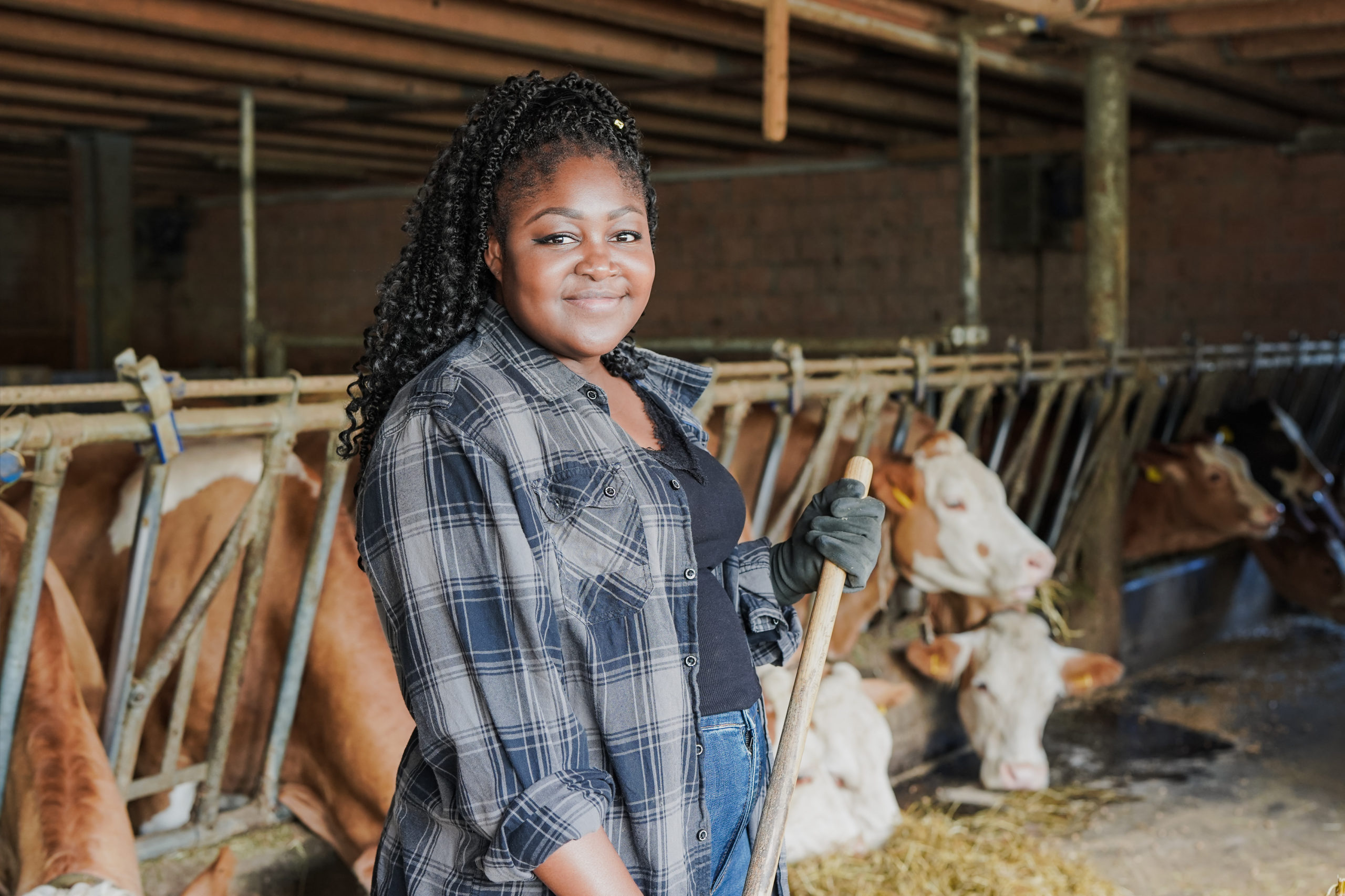How is AgriFood innovation helping to build better livelihoods in Africa?
Of the 86 completed AgriFood Africa Connect Innovation Awards, 52 resulted in jobs being created or safeguarded and 52 reported an improved income for farmers. In this article, read about three of these projects and their impact on building better livelihoods.
The need: Reducing poverty through improved production efficiencies
Of the global population, more than 700 million people live in extreme poverty. With 70% of Africans reliant on agriculture to make a living, initiatives that secure sustainable incomes from farming are critical to delivering economic security.
Breaking the cycle of poverty involves decent and productive jobs, sustainable enterprises and the development of transferable agricultural models to support Africa’s estimated 33 million smallholders.

The solutions: AgriFood Africa Innovation Awards livelihoods case studies
Our three selected case studies showcase how a collaborative approach has developed strategies to secure sustainable income streams through enhanced efficiencies in the food supply chain.
-
Improving tilapia production efficiencies to produce smaller, more affordable fish
Tilapia aquaculture is a vital livelihood for countless smallholders in sub-Saharan Africa.
Focused on Lake Victoria in Kenya, this project between Steve Moran of Victory Farms, David Little from the University of Stirling, and Tunga Nutrition, trialled alternative production models to reduce feed inputs which account for 70-90% of operational costs.
Victory Farms recognised that producing larger fish presents cash flow challenges for smallholders. This is due to the high cost of the feed needed to support larger fish. In response to this issue, the team trialled strategies to alter the stocking density of ponds and the timing of harvest to produce smaller fish.
Their research demonstrated that new ‘partial harvesting’ techniques had no detrimental impact on fish survival or growth rates. Additionally, the project identified significant market demand for smaller fish, helping improve food security for lower-income consumers through the supply of an inexpensive and more micronutrient dense product.
Shortening the commercial production cycle of tilapia in this way has improved feed efficiency and boosted the cash-flow of local microbusinesses.
“This research has provided us with valuable insight. It’s our belief that this will help us reduce the cost of feed within Kenya, helping food security and not only for us, but the same research is equally relevant for the smallholder farmers in our area.”
– Steve Moran, Chief Partnerships Officer, Victory Farms Kenya
Future opportunities:
- Redirecting tilapia processing waste as a feed for catfish and chickens and increasing access to affordable, nutrient-rich animal source protein food.
- Applying research to other Global South locations, and further quantifying relationships between production techniques and economic outcomes.
-
The development of genomic resources to protect Muturu cattle from extinction
The indigenous Muturu cattle is a breed of great economic and cultural significance in Nigeria. Their sacred status has led many farmers to depend on on-farm mating which has led to inbreeding. The breed’s risk of extinction poses a threat the livelihoods of rural communities.
This collaborative project between Oluyinka Opoola from the University of Edinburgh and Matthew Wheto from the Federal University of Agriculture, Abeokuta (FUNAAB) addressed the unexploited beef production potential of the Muturu. Cattle breeding strategies have been developed using phenotypic and genetic categorisation to sustainably conserve the Muturu by establishing a large and diverse population.
A farmers’ workshop engaged over 60 attendees and succeeded in increasing awareness of breeding issues around the cattle and the economic significance of their genetic conservation. Five hundred Muturu cattle were tagged and their genetics were sampled. This provides the data needed to develop a breeding programme ensuring sustainable utilisation of the breed by farmers.
Future opportunities:
- Extending research into genetic resources for other indigenous breeds elsewhere in Africa and beyond .
-
Sustainable production of mopane worms: an opportunity to scale
Mopane worms are harvested from the wild in Zambia. They are a source of income as well as protein and minerals.
To address currently unsustainable collection methods and post-harvest treatments that threaten livelihoods in the long-term, Norbert Maczey of CABI in the UK and Patrick Chikoti from the Zambia Agriculture Research Institute (ZARI) pioneered feeding and breeding trials.
Experiments to rear mopane worms were undertaken, and the mopane worms produced were tested for pathogens and heavy metal residues. The trials demonstrated the potential for farmers to shift from wild harvesting of mopane worms to semi-artificial rearing.
Offering improved health, economic and environmental outcomes for the mopane worm supply chain semi-artificial rearing could sustainably support livelihoods for rural populations in Zambia.
Future opportunities:
- Collaborating with a local forest conservation organisation to improve forest management and co-benefits of sustainable mopane worm production.
- Working towards an improved testing regime that can better clarify food safety and storage periods for shops and supermarkets.
Discover more about our impact
With 86 Innovate UK AgriFood Africa Connect Innovation Awards completed, each project has helped to improve the sustainable management of African AgriFood systems. The commitment from project leads is to create positive change, guided by GCRF AgriFood Africa’s key goals which aim to reduce poverty, increase economic prosperity, and improve wellbeing.
Dive deeper into our journey and explore project impact and approaches in:
Related programme

AgriFood Africa Connect
Innovate UK AgriFood Africa Connect brought innovative people and organisations across the UK and Africa together to develop solutions for the sustainable management of AgriFood systems in Africa.

